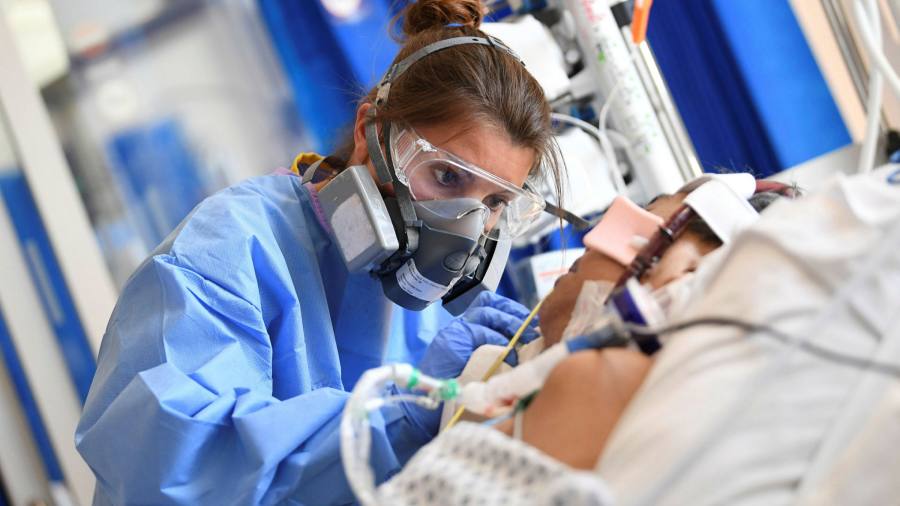[ad_1]
Pandemic-level spending on the NHS will need to be maintained for the next three years, because of long-lasting pressure from Covid including a backlog of cases that could take several years to clear, according to the chief executive of NHS Providers, which represents leaders across the health service.
Laying out his case in an article for the Financial Times ahead of the March 3 budget, Chris Hopson, called for spending to continue at current levels until 2023/4.
In his spending statement almost a year ago, Rishi Sunak, chancellor, gave an open-ended commitment to the NHS, saying he would spend “whatever it needs, whatever it costs†to get the service through the crisis.
Hopson said the extra costs of coronavirus meant spending in 2020/21 would now be “much closer to what was intended for 2023/24†under a five year funding deal agreed by then-premier Theresa May three years ago.
According to a paper presented to the NHS England board, net expenditure in the first eight months of the current financial year stood at £93.9bn. That implies it is on a trajectory to reach £141bn by the end of March.
This compares with £127bn allocated for 2020-2021 under the 2018 financial settlement and brings the annual outlay close to the £148.5bn the health service was due to receive only in the final year of that deal. The figures underline the extent to which the pandemic has accelerated strains on the public finances.
Urging pragmatism on the part of ministers to sustain this year’s level of spending, Hopson said: “It makes little sense to allow the core budget to fall back over the next two financial years only to build it back up again to existing 2023/24 commitments.â€
Hopson argued maintaining higher levels of spending for the next three years “would not bake in a higher long-term funding increase, as that for 2023/24 would remain as plannedâ€.
He also called for long-awaited multiyear deals on capital spending and training — excluded from the 2018 settlement — suggesting spending commitments on which Boris Johnson won the last general election could otherwise be in peril.
“Certainty over capital and workforce funding is now even more pressing given that this government was elected in 2019 on a manifesto that promised 40 new hospitals by 2030 and 50,000 extra nurses and 50m more patient appointments with GPs by 2025,†he wrote.
Hopson acknowledged the health service would “have to make the NHS pound stretch further,†pointing to a white paper released on February 11 that envisaged greater collaboration between health and social care.
But the service needed “a pragmatic approach to the core NHS revenue budget between now and 2023/24â€, he argued.
Outlining the way Covid had created “a huge raft of costs, both short and long termâ€, he highlighted a backlog of elective surgery that would take several years to clear, a rapid increase in demand for mental health services, and the need to treat patients with long Covid.
Meanwhile new obligations such as an annual Covid vaccination campaign, a permanent test, trace and isolate service to combat virus mutations, and tighter infection controls would make additional calls on funding. The NHS also needed “more resilience for surges in demandâ€, he said.
The health department said: “We have put huge levels of investment into our NHS, both before and during the pandemic, and NHS funding has increased every year since 2010.â€
“We are determined to support the NHS in every possible way, investing £52bn this year and £20bn next year to help the health service fight coronavirus.â€
[ad_2]
Source link






